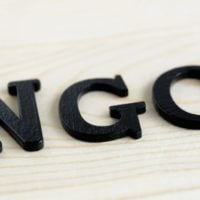Deadline: 18-Feb-22
The Fund for Global Human Rights is currently accepting applications for the Legal Empowerment Fund (LEF) to provide urgently needed, long-term support to grassroots justice defenders and organizations that are fighting to help people understand and claim their rights while shaping the laws that govern them.
Legal empowerment combines law with organizing to build power among people affected by injustice. When people are able to know, use, and shape the law, they can access justice. With the law on their side, people are able seek peaceful solutions, protect the lands and resources they depend on, and hold their governments and other perpetrators of justice to account.
Over ten years, the LEF aims to raise $100 million to strengthen the people-centered justice movement. The LEF will support visionary grassroots justice groups with renewable and long-term core funding, offering space for experimentation and access to a global network of donors, advocates, and allies.
The LEF has been made possible through the generous support of funders and allies, including:
- The Charles Stewart Mott Foundation, a private philanthropy committed to supporting efforts around the world that promote a just, equitable and sustainable society.
- The William and Flora Hewlett Foundation, a nonpartisan, private charitable foundation that advances ideas and supports institutions to promote a better world.
- Namati,which advances social and environmental justice by building a movement of people who know, use, and shape the law. Namati also convenes the Legal Empowerment Network, with over 2,500 groups and 10,000 individuals from every part of the world
- Pathfinders for Peaceful, Just and Inclusive Societies, a group of 39 UN member states, international organizations, global partnerships, civil society organizations, and the private sector working to accelerate action to implement the SDG targets for peace, justice, and inclusion (SDG16+).
Priorities
In this funding cycle, the LEF seeks to support:
- Grassroots organizations with limited access to flexible, core funding.
- Organizations that have experience learning with or working in formal or informal partnership with other legal empowerment organizations, social justice movements, and collectives.
- Organizations that combine law and organizing to build power in communities. They help people to know, use, and shape the law as a pathway for transformative change.
- Organizations using legal empowerment strategies that advance systemic change beyond individual cases. Legal empowerment methods include raising awareness of rights and laws, aiding people in navigating legal and administrative processes, or mobilizing community members to engage in law and policy reform, among many other strategies.
- Organizations that contribute toward building the legal empowerment movement, learning and partnerships.
- Organizations that demonstrate an ability to execute legal empowerment strategies, learn from their mistakes, and adapt to challenges.
- Organizations that can articulate a vision for the future. This may involve steps to reinforce or strengthen existing efforts or experimenting with ways to expand or evolve legal empowerment work.
Funding Information
The LEF will consider proposals for $10,000-$100,000 in annual funding, and for a period of up to two years.
Eligibility Criteria
- Registered or unregistered grassroots organizations with the ability to manage multiyear unrestricted grants.
- Grassroots organizations—i.e., organizations that come from, are led by, and are accountable to the people most impacted by a problem. The organization can be formally or informally structured, can work within or outside of movements, and can be made up of volunteers or have paid staff.
For more information, visit https://globalhumanrights.org/updates/lef-launches-first-request-for-proposals/









































